Banff National Park is home to some of the most stunning scenery we’ve ever seen – and three self-contained ski resorts. Taken together, they offer an unusually varied skiing/boarding experience – provided you don’t come expecting thigh-deep powder.
Altitude: 1631m
Lifts: 26
Top lift: 2637m
Ski area: 7748 acres of trails
Adult lift pass: CDN$474 for six days
Official Site |
Ski Map |
Webcam
Essential Advice for the Perfect Trip
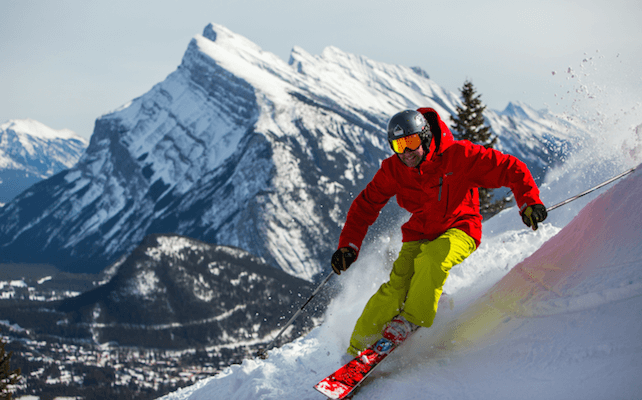
The three ski areas of Banff National Park are blessed: set amidst some of the most magnificent mountains in Canada, and cooled by a winter climate which usually keeps their trails skiable from November to early May. By European standards, none of their lift systems is particularly big. But taken together they make for a tempting destination: fragmented, yes, but also beautiful, friendly and edged with a sense of wilderness you just don’t get in the Alps.
But first you need some orientation. Banff is a small town just inside the park gates, which is busiest in summer and regards winter as its off-season. It has its own pocket-sized ski area at Mount Norquay. Some 20 minutes’ drive from here is the second ski area – Sunshine Village, which is the highest and snowiest of the resorts, and is home to its most exciting off-piste terrain. Meanwhile, a full 59km from Banff is Lake Louise, the biggest of the ski areas, and for piste skiers especially, the most popular. All three areas share a lift pass and are connected by a bus service.
It is, in many ways, a marketing triumph that three such far-flung ski resorts should have come to be viewed as a single destination – but Banff-Lake Louise is the one place it makes sense. After all, the daily commute by bus is through some of the most stunning mountain scenery you’ll ever see: memorable not just for the cliffs, crags and soaring peaks, but the vast and empty forests in between. Travelling through it each day seems as much a privilege as chore.
The sense of wonder continues after you’ve clicked into your skis. All three ski areas are – by European standards – extraordinarily quiet and laid-back. Surrounded by such stirring scenery, in such a welcoming environment, it’s hard not to get a bit giddy on your first two or three days.
A reliable climate – but it does get cold
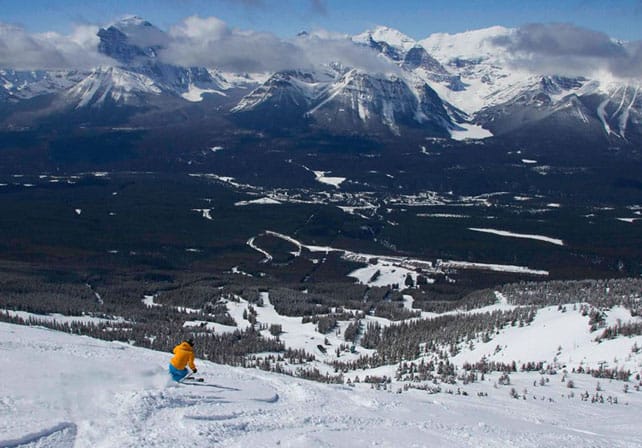
Mid-winter, temperatures of -20C are not uncommon on the slopes, so think carefully about your ski clothing before you come. Bring lots of layers, and invest in one of the widely-available face-masks on arrival. It may not get properly frigid during your stay – but at least you’ll be prepared.
The payback for this cold climate is a long season, and – usually – reliable snow. Banff-Lake Louise is not one of Canada’s celebrated powder-skiing destinations: because the eastern side of the Rockies is considerably drier than the west. But the snow that does fall comes early, stays late, and is kept in tip-top condition by low temperatures for much of the season. And when there is a dump, the uncrowded off-piste runs are heaven (as I discovered on Delirium Dive in Sunshine Village).
Bear in mind, however, that the 2015-16 season may be affected by the Pacific Ocean climate anomaly known as El Niño – which will be exceptionally strong this winter. No-one knows for sure how this will pan out, but it could mean a warmer-than-average winter inland in British Columbia, and Alberta could easily be affected too.
A great launchpad for a road trip
Renting a car (make sure it’s a 4×4) adds considerable convenience and avoids any hanging around at bus-stops in the mid-winter cold. It also opens up the possibility of a road trip, moving on from the National Park to the resort of Jasper (see below) or to the ski areas of British Columbia, such as Kicking Horse and Revelstoke. This is when the Canadian Rockies really come into their own. But it will add to the cost of the trip.
Guide to the Mountain
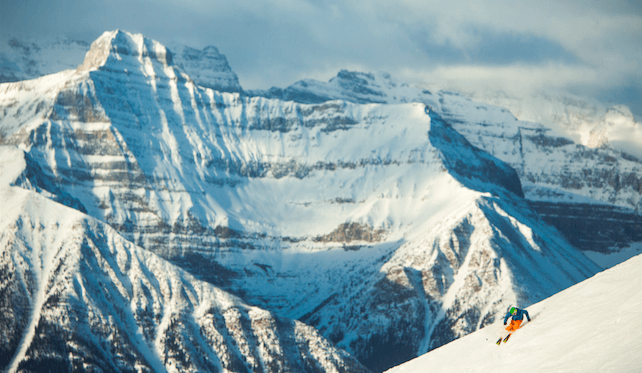
Banff Lake Louise has three ski areas to choose from. Norquay has the impressive terrain park, Sunshine has the snow, Lake Louise has the best groomers. All are modest in size compared with European resorts, but are also blissfully uncrowded. The Tri-Area Lift Ticket will give you access to all three.
Norquay is Banff’s local hill
Norquay is more than a local hill, but not much more. No-one would cross the Atlantic to spend a week or ten days riding four chairlifts. Nevertheless we have spent enjoyable mornings here repeatedly cruising beautifully groomed, but short trails cut through the trees. The pitch dictates whether each is classified as easy or intermediate. Four of them correctly get a double-black-diamond rating (ie super-steep). Norquay also home to the Banff’s Backyard terrain park.
Sunshine Village is where you’ll find Delirium Dive
Sunshine Village has three separate mountains, offering a wide variety of terrain. Mount Standish is a rounded, exposed peak and is strong on short, but confidence-boosting, groomers for early intermediates (there are more off the Wawa Quad Chair next door). Goat’s Eye Mountain is home to several excellent expert and advanced runs (both groomed and ungroomed), while Look Out Mountain suits strong intermediates and more advanced skiers.
It’s on Lookout that you’ll also find the classic off-piste run, Delirium Dive. The YouTube video below gives you a good idea about it. While not in the same league as Corbet’s Couloir in Jackson Hole, it is spoken off in reverentially hushed tones by the cognoscenti. The ski patrol adds to the hype by insisting that you wear a transceiver and have shovel and probe in your backpack.
In fact, the idea is to confine this pitch to dedicated off-piste enthusiasts who are already sufficiently experienced enough to have bought their own gear – you can rent a transceiver at local sports shops like Discover Banff, Alpine Country Rentals, and Yamnuska. After a usually tricky entrance it opens into steep bowl with a choice of exits: the more direct involves a walk-out, while a lengthy traverse to the skier’s right offers more powder and a speedier return to a lift.
Wild West is a similar adrenalin-fuelled experience – three rock-walled couloirs and a series of 30m cliffs accessed from the western end of Goat’s Eye.
It’s worth noting that has the highest snowfall of the three areas – 30ft/9m – and usually has superbly grippy snow on-piste. However, it still doesn’t qualify the Banff area as a proper, powder-pig destination. Compare its average snowfall with that of Snowbird in Utah: its average is 466 inches/11.83m a year.
ARVE Error: For the maxwidth (maxw) option you need to have normal or lazyload mode enabled, either for all videos in the plugins options or through shortcode e.g. [youtube id=123456 mode=normal maxw=999 ].
Lake Louise has the greatest variety of terrain
The biggest of the three areas, Lake Louise has every type of terrain going, from gentle tree-lined trails to steep chutes and a couple of big, open bowls. What’s more, there’s an easy run down from every lift, so by the end of their first week, more accomplished beginners will be able to explore the whole area. There’s also an excellent nursery area, to the right of the shot, above, which has no through-traffic.
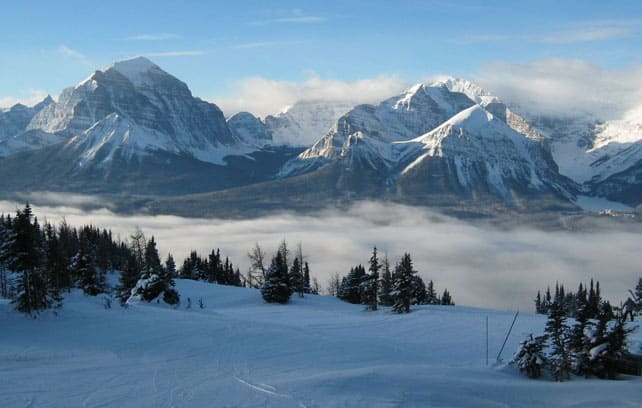
For strong intermediates and advanced skiers, the pick of the action is off the backside of the mountain. Here, several bowls and chutes offer challenges from the exciting to the downright impossible. One of the easiest is Paradise Bowl – although you should know that the locals call it Comedy Bowl instead, because of all the pratfalls they witness from the chair above it.
If there’s any new snow in the area, you’ll find it here – blown off the frontside of the mountain by the wind. All in all, it’s a really fun, compact freeride area, and avalanche controlled to boot. However, when the snowpack’s unstable, they’ll shut the steeper runs.
Meanwhile, at the back of the ski area sits the Larches – mainly blues and long greens, and much-loved by early intermediates. Experts will enjoy the hike from the lift up to the top of the double-black-diamond (and avalanche-protected) Elevator run.
Norquay’s park open day and night
Norquay’s terrain park – Banff’s Backyard – was created by world-renowned park designer, Jeff Patterson, and has had a revamp for 2015-16. There are three lines (large jump line, intermediate rail line, and small-medium line for junior shredders), and it is fully lit during night-skiing throughout the season, with music from 5-10pm. You can check out the park and view any changes on a blog put together by the park crew.
The Showtime Terrain Park at Lake Louise contains a mix of boxes, rails, jumps, hips, culvert spine, steel log, wall ride, and a feature known as ‘Log World’.
Where to Learn
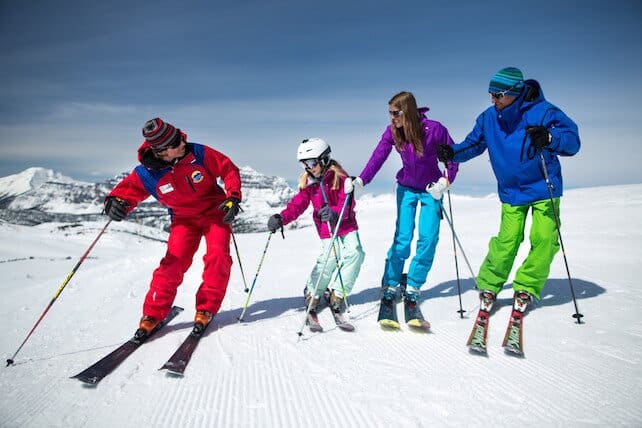
The best way to explore all three ski areas of Banff Lake Louise is by joining the Club Ski/Snowboard programme – which are three-day courses for all standards of skier. These comprise guided days – with the same instructor – in each of the three ski areas.
The ski school in Banff Lake Louise is one of the main attractions
Lake Louise, Ski Norquay and Sunshine Village all have their own ski and snowboard schools, offering group and private lessons. They were praised by reporters: “The ski school was incredible. Well organized, very friendly and terrific value for money,” said one. In fact, along with the empty slopes and can-do attitude, the quality of the instruction is what gets British visitors most excited about the resort.
A number of organisations offer ski instructor courses based in Banff, including Base Camp, Epic Gap Year, Gap Year Canada, Nonstop Ski & Snowboard and Peak Leaders.
Most families with young children opt for Lake Louise
Banff Lake Louise suffers from bitterly cold weather, which doesn’t make it a great choice for families with small children. Lake Louise would be the best base but, if you’re staying in Banff, then renting a car adds a lot of convenience and avoids any hanging around in the numbingly low temperatures. Make sure they wrap up extra-warmly, with thermals, neck warmers and mittens rather than gloves.
All three ski schools offer tuition and daycare for children, and the biggest choice is at Lake Louise. Here there is daycare for babies from 18 days of age up to six years old, by the hour, in a dedicated building next to the Lodge of Ten Peaks. The KinderSki programme at Lake Louise is an introduction to skiing for little ones aged three and four years, with no prior booking required. The Club Junior ski school programme offers a fun learning experience for children aged six to 12 years old, with lunch included.
Tiny Tigers Daycare, at Sunshine Village, and Kid’s Place Day Care at Norquay supervise children from 19 months to six years of age.
Where to Stay
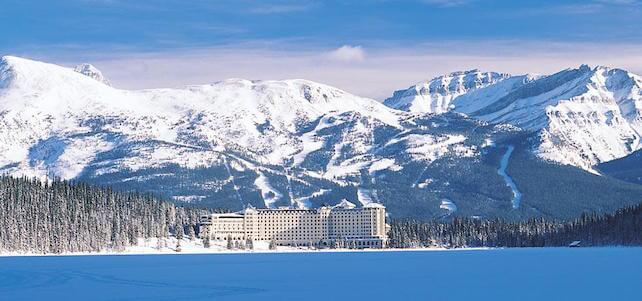
More than in almost any other ski resort in the world, choosing where to stay in Banff Lake Louise is of great importance. The question is whether to base yourself in Banff town which has most of the shops and restaurants, a nightlife offering an enormous number of bars and clubs on Banff Avenue, and the iconic hot springs.
From here you’ll have to take a long bus-ride to the skiing at both Sunshine Village and Lake Louise. Banff town does have its own small ski area: Norquay, but it’s not much more than a local hill and no-one would cross the Atlantic to spend a week here.
Choose between remote beauty or partyland
Alternatively you can stay in Lake Louise, where you are near the ski area of the same name. It’s the biggest and overall the most impressive of the three ski areas and offers every type of terrain – from gentle tree-lined trails to steep chutes and a couple of big, open bowls. However, it’s strikingly beautiful, remote, and located well away from the partyland of Banff Avenue – and the other two ski areas. If you stay in Lake Louise you’ll ski in Lake Louise – possibly with a day trip to Sunshine Village.
The third choice is to stay in Sunshine Village, which has the area’s only ski-in ski-out property: the Sunshine Mountain Lodge. This is reached by a 15-minute gondola ride from Sunshine base. Staying here you will have none of the atmosphere of Banff or the beauty of Lake Louise. However, the ski area is home to the classic off-piste run, Delirium Dive, which is spoken off in reverentially hushed tones by the cognoscenti in the same way as Corbet’s Couloir is in Jackson Hole.
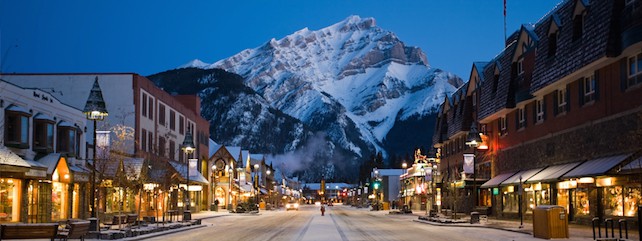
A Scottish castle in the Canadian Rockies?
Wherever you choose to base yourself, there’s an impressive variety of accommodation, with nice big rooms, too. The star hotel in Banff is the Fairmont Banff Springs, Banff’s classic hotel which, along with the Chateau, was built by the Canadian Pacific Railway. It was built to look like a Scottish castle with one of the best spas in Canada (“everything you could wish for – magical”).
Another good choice is Buffalo Mountain Lodge, set slightly above Banff and decorated in rustic ski lodge style. “It’s boutiquey in style, and has great bathrooms which feature freestanding baths, as well as fireplaces in the rooms,” says a guest. On Banff Avenue, convenient for the shops and bars, is Banff Caribou Lodge & Spa, a 15-minute walk from downtown and designed in a rustic Western style with 195 rooms and six loft suites. Handy for the ski bus, too.
A couple of blocks away is one of our personal favourites, The Fox Hotel & Suites. It has enormous rooms and suites, many of them interconnecting, and a dramatic hot pool under an atrium. Another good choice is Rimrock Resort Hotel, which is elegant and modern, is located on Sulphur Mountain a short walk from Banff’s natural hot springs. Tucked away in a quiet and secluded position is Hidden Ridge Resort.
More moderate offerings in downtown Banff
Most people end up staying in one of the hotels on Banff Avenue, where the shops, bars and restaurants are all within walking distance. The Mount Royal is ideally placed for Banff’s nightlife. Juniper Hotel & Bistro has chalets and suites. The Rundle Manor is a good-value apartment-style hotel in downtown Banff. Guests have free access to the spa at the Banff Ptarmigan Inn. Siding 29 Lodge is a no-frills hotel with an indoor pool.
One of the world’s most gorgeous settings in Lake Louise
In Lake Louise, the leading hotel is Fairmont Chateau Lake Louise, which is in a quiet wilderness setting with spectacular views over the frozen lake.
The Post Hotel & Spa, also in Lake Louise, is run like an Austrian hotel in the Alps. Staff are charming and efficient, and the rooms are large and comfortable (though conservative in style). There’s a smart spa here too – but what really marks this place out is its restaurant and cellar. The food is excellent (if pricey), and the cellar one of the most impressive in the Rockies – boasting 30,000 bottles and impressive coverage of first-growth clarets, new-world pinots, etc, etc. Settling down to a sumptuous dinner here, when the temperature is -16C outside, feels miraculous.
Deer Lodge is two minutes’ walk from the lake shore, and ideal for those wanting a quiet retreat. It has a roof-top hot tub.
Where to Eat
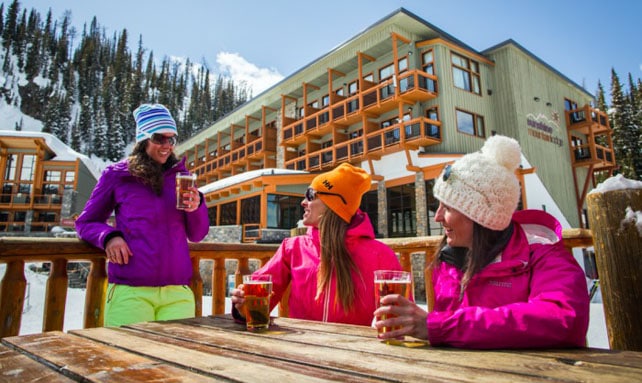
If you’re used to prices in the A-list resorts of the Alps, you’ll be surprised by the value for money in Banff Lake Louise – especially now that the Canadian dollar has weakened. However, the best cooking is to be found in the town of Banff itself (and the village of Lake Louise) rather than on any of the mountains.
Wherever you go, you’ll eat a lot of meat. The Albertans are proud of the quality of their beef, and now their bison, too…
On the mountain at Lake Louise, the newly-renovated Whitehorn Bistro is the place to go for table-service dining: specialities include cheese fondue, signature seafood chowder and braised bison short ribs. Meanwhile, new at The Lodge of Ten Peaks in the base area is a sushi bar, alongside the burgers, pizzas, salads and BBQ wings at the Powderkeg Lounge. Meanwhile, the Kokanee Kabin, next to the base of Glacier Chair, has barbecues and a new smoker, and Temple Lodge on the backside of the mountain has a self-service cafeteria and weekend barbecues when the weather’s good.
Northface Bistro is in Whiskyjack Lodge and offers ‘an upscale dining experience’ using the freshest ingredients at breakfast and lunchtime.
At Sunshine Village, all the restaurants are at the mid-mountain “base” area. Lookout Bistro on the top floor of the Day Lodge has a warming fire place and a selection of burgers, pizzas and hearty starters. We recommend The Eagle’s Nest in Sunshine Mountain Lodge for a long, relaxed lunch. Mad Trapper’s Saloon, at the base of Strawberry Lift, is a Western-style saloon on two floors with the ubiquitous burger. At Norquay, Cascade Lodge houses the Lone Pine Pub which serves hearty mountain fare. Meanwhile, the Cliffhouse Lodge at Norquay will be opening for dinner on full-moon nights.
Banff’s restaurants reflect its multi-cultural clientele
Maple Leaf Grille is essentially Canadian with an emphasis on elk, bison, duck, and lobster. “We’ve always been in Banff over our wedding anniversary and always go the The Maple Leaf,” says a Banff regular.
Eden at the Rimrock hotel is where to go for your fine-dining, French cuisine splashout (it’s one of only five AAA/CAA 5-diamond restaurants in Canada) – and don’t forget to get stuck into its award-winning wine list. The Bison is another place serving Canadian dishes, with specials such as butter-roasted bison and Rocky Mountain venison. Melissa’s Missteak is a rustic log cabin with great steaks and BBQ ribs. Ticino was voted locals’ choice for fine dining and serves Swiss-Italian fare. Le Beaujolais is French, romantic, and regularly wins Canadian culinary awards. Try their Alberta Kobe beef carpaccio.
Meanwhile, El Toro serves Canadian standards (braised lamb shoulder) alongside tapas and sizzling fajitas, the Silver Dragon (+1 403 762 3939) serves Cantonese Peking cuisine, and Pad Thai (+1 403 762 4911) is more of Thai takeaway than a restaurant, but is cheap and highly-rated.
In Lake Louise Village, The Post Hotel and Deer Lodge are both recommended – the Post Hotel’s wine cellar is now one of the most impressive in Canada, if not the skiing world, boasting 30,000 bottles, and impressive coverage of Clarets, Burgundies, New World Pinots and Cabernet Sauvignons.
For something more low-key, try Timber Wolf Pizza (+1 403 522 3791), at the Lake Louise Inn. The Fairmont Chateau Lake Louise has four restaurants including the Walliser Stube Wine Bar (+1 403 522 1817). Mountain Restaurant serves Asian fusion cuisine and pasta.
Where to Party
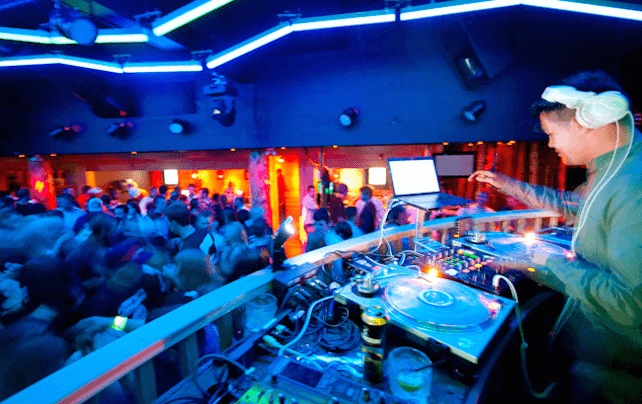
If you’re coming to Banff Lake Louise with the aim of partying hard, then you will need to stay in the town of Banff – preferably in one of the hotels or condos conveniently set along Banff Avenue. The nightlife at Lake Louise is considerably quieter, and restricted to a few hotel bars. Having said that, Kokanee Kabin (+1 403 522 3555), adjacent to the base of Glacier Chair in Lake Louise, is a good place to start your apres-ski. Live music creates the atmosphere, so check which band is going to be playing.
Later on, a pub crawl along buzzing Banff Avenue is the cornerstone of the apres-ski scene. The nightlife in Banff revolves around the enormous number of bars scattered along the main road. Stops should include Tommy’s Neighbourhood Pub (+1 403 762 8888), the back bar at local’s favourite The Magpie and Stump (+1 403 762 4067) where they serve margeritas in old jam jars, and The Rose and Crown which is especially lively on Tuesday nights and at weekends (Friday and Saturday is when the live bands play).
St James’s Gate is an Irish pub was built in Dublin and shipped over to Canada – complete with typically Irish woodwork and artefacts. It has a friendly atmosphere and welcomes children until 10pm. For live music, Wild Bill’s has Country and Western bands – and line dancing on a Wednesday night. The Elk & Oarsman hosts quiz nights, hockey nights, and live rock bands. Hoodoo Lounge is a popular nightclub. Aurora is currently closed for renovation, and expects to re-open in early 2016. Dancing Sasquatch is a favourite, with DJs, and a Canadian cabin-themed bar.
A healthier way to warm up after skiing is by taking a dip in the historic hot springs, which are set against the dazzling backdrop of the National Park – Banff Upper Hot Springs also has a day spa, and you can even rent a 1920s swimsuit to get in the mood.
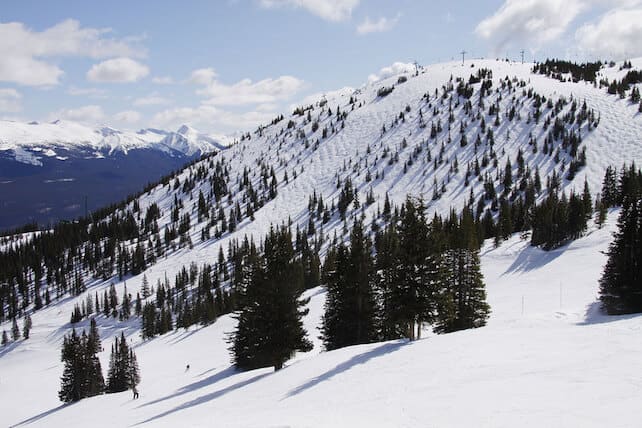
Take a Trip to Jasper
Arguably the most beautiful Canadian resort, and certainly the most northerly, Jasper is close to the Icefields Parkway in Alberta with its glaciers and frozen lakes, forests and dramatic waterfalls.
This is a resort you could work into a two-centre trip with Banff-Lake Louise, as long as you like long scenic drives (it’s 288km and takes around four hours). The most northerly and arguably the most beautiful of Canadian resorts is set among the glaciers, forests, frozen lakes and waterfalls of Jasper National Park.
The town dates back to 1811 when explorer and map-maker David Thompson built a base here while searching for a fur-trading route through the Rockies. Whether he would recognise the smart community of today with its outdoor hot tubs, sushi restaurants, and designer boutiques is quite another matter.
The ski area at Marmot Basin, is a 20-minute drive from the town and a shuttle service between Jasper and Marmot Basin runs every day of the season.
The varied 1,675 acres of terrain offers considerable scope to skiers of all standards, including long cruising trails, open bowls, steep chutes and glades cut through the trees. The 86 trails are split evenly between easy green, more demanding blue) and testing black-diamond runs. They are reached by seven lifts. Even at peak times during the winter, the slopes remain largely uncrowded.
The longest run from the top of the ski area is a highly respectable 5.6km, but this is not a resort for clocking up huge daily distances. Marmot Basin offers excellent beginner and cruising terrain as well as some demanding steeps. All this is set against the natural beauty of Jasper National Park, a World Heritage Site and the largest preserved wilderness area in the Canadian Rockies.
Prime accommodation is in the Fairmont Jasper Park Lodge, which has four restaurants, a shopping mall, spa that offers yoga classes, an outdoor swimming-pool, and is a small resort in its own right.

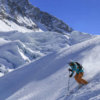
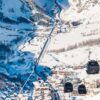
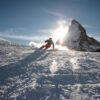
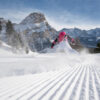
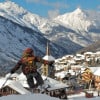
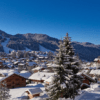
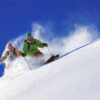
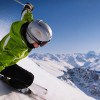
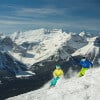
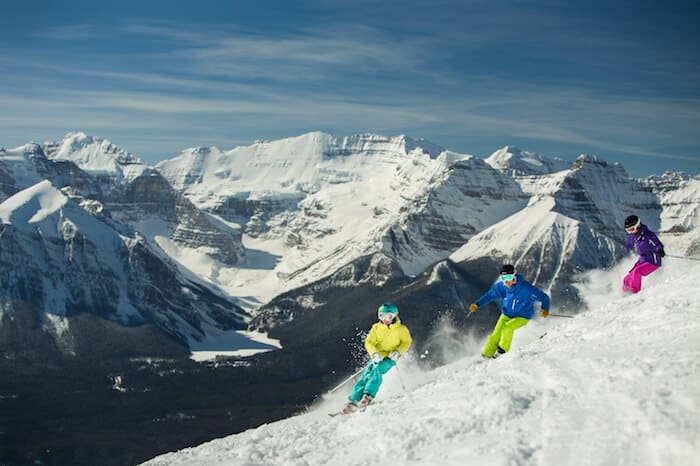
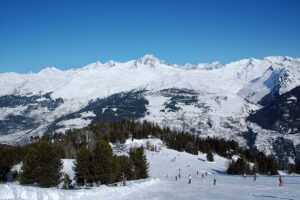
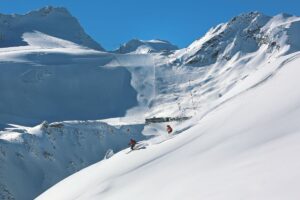
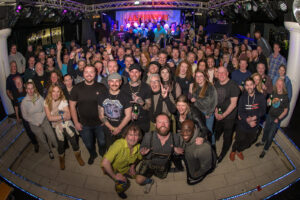
Add Comment